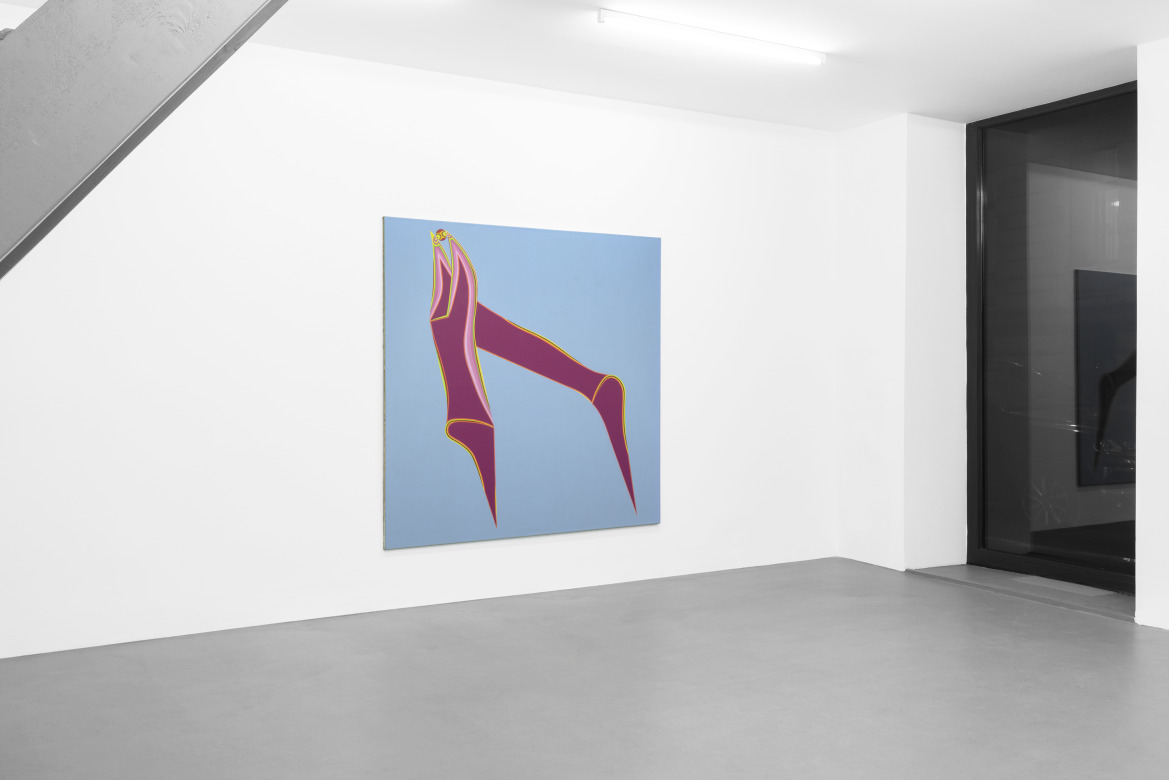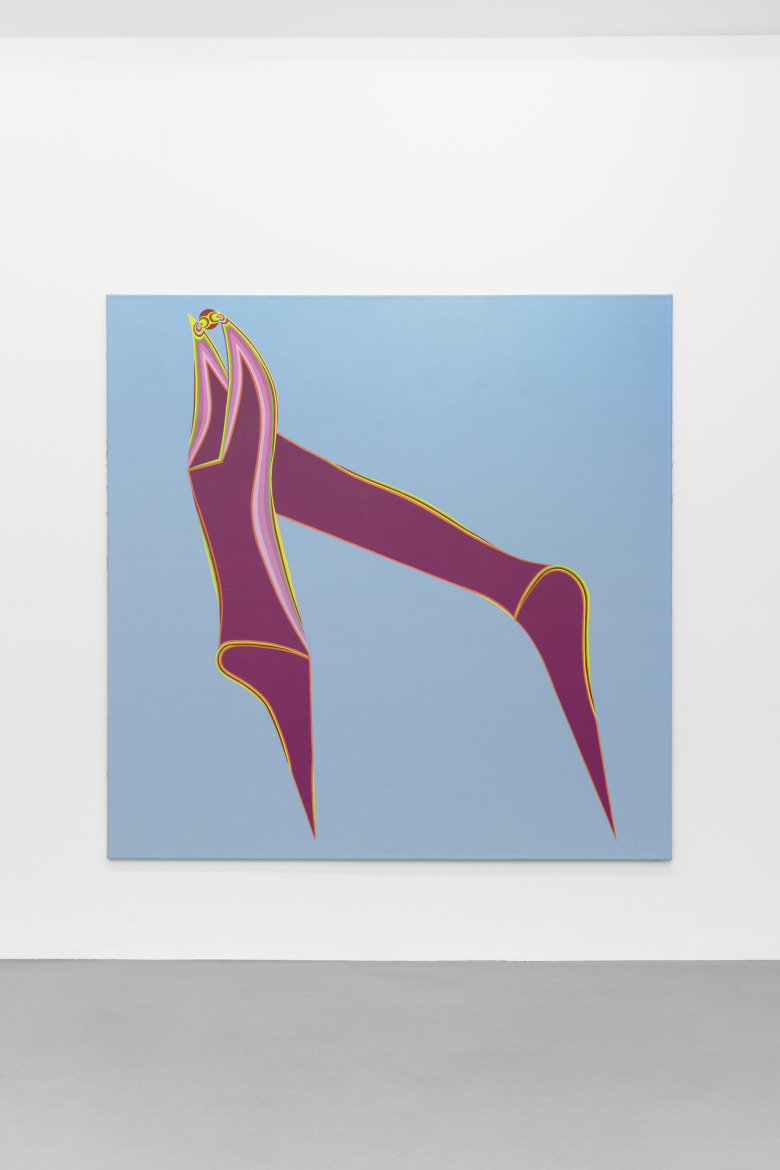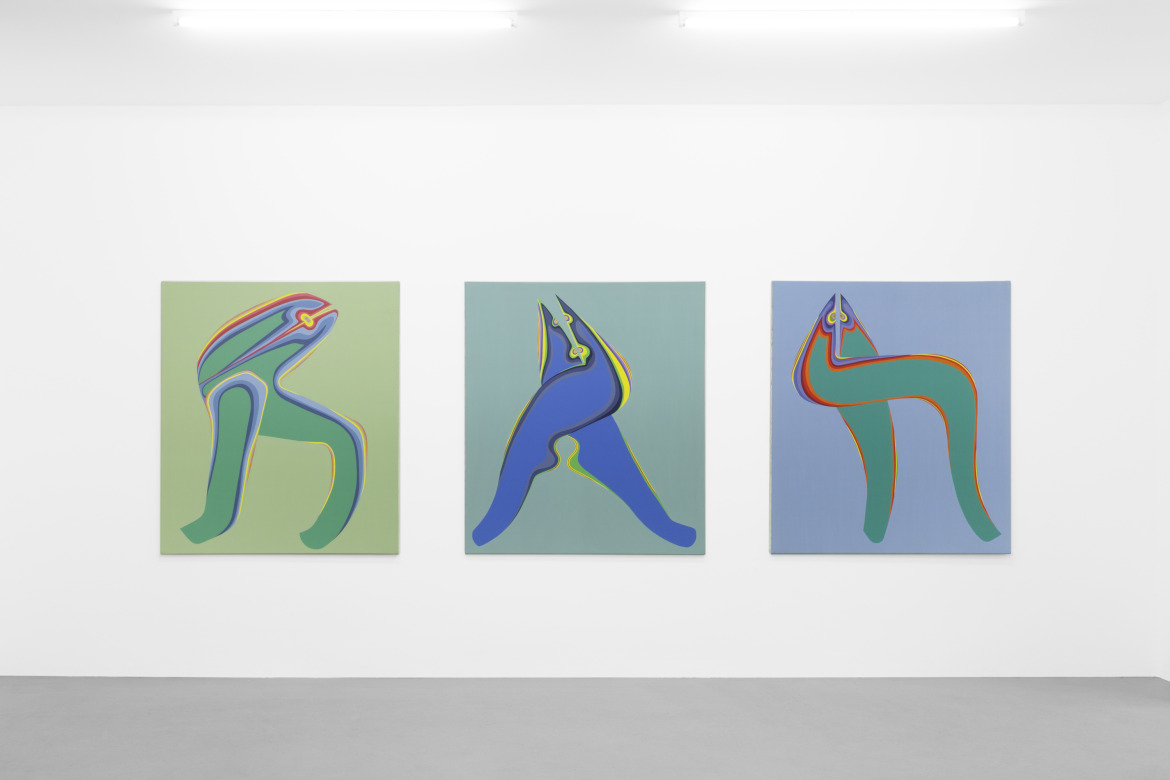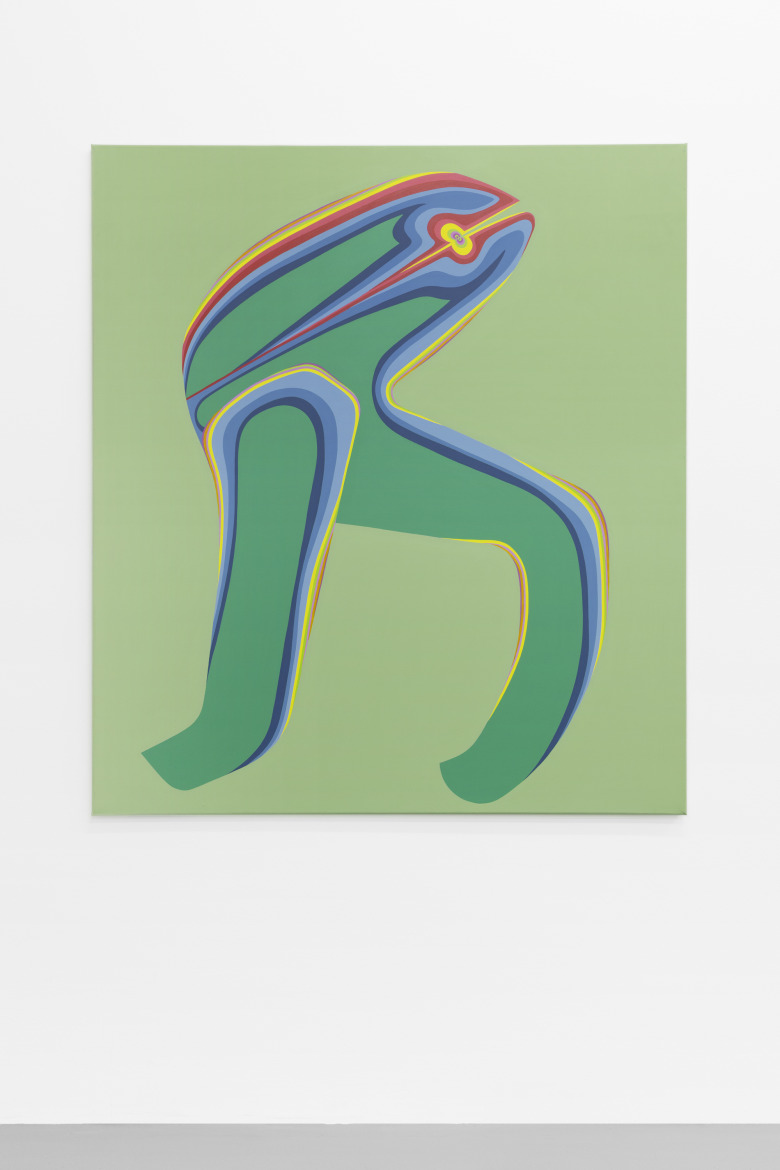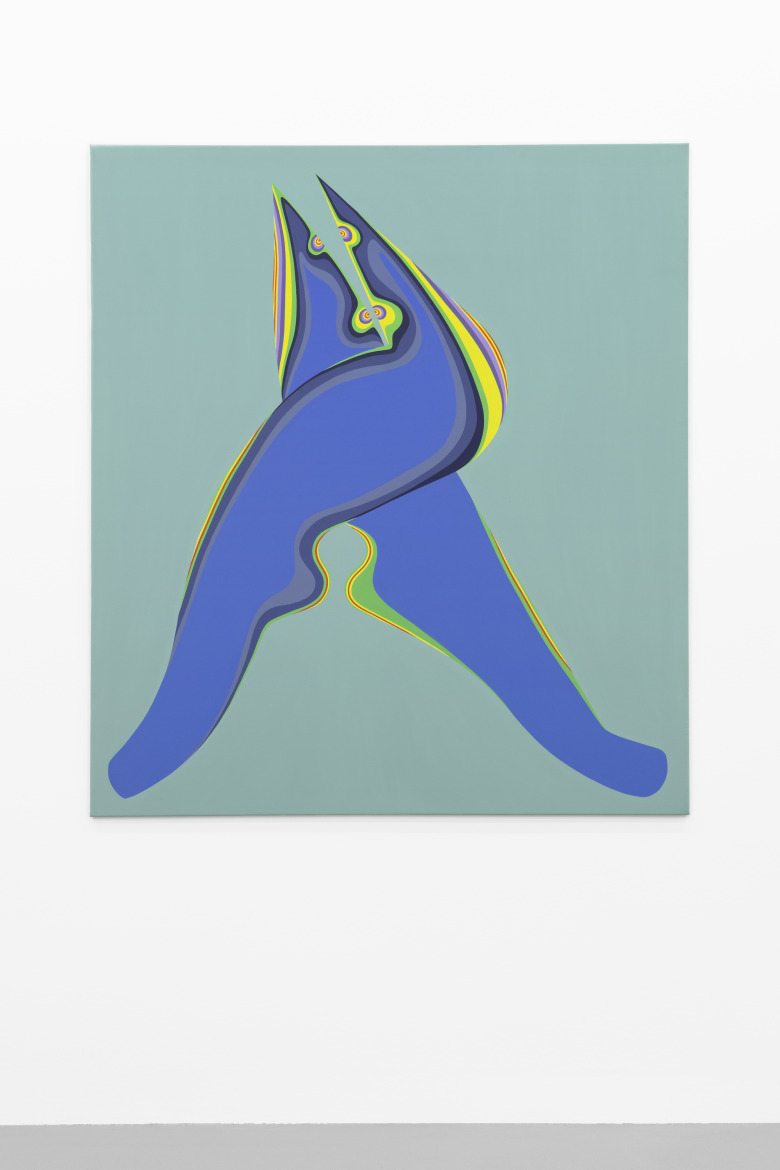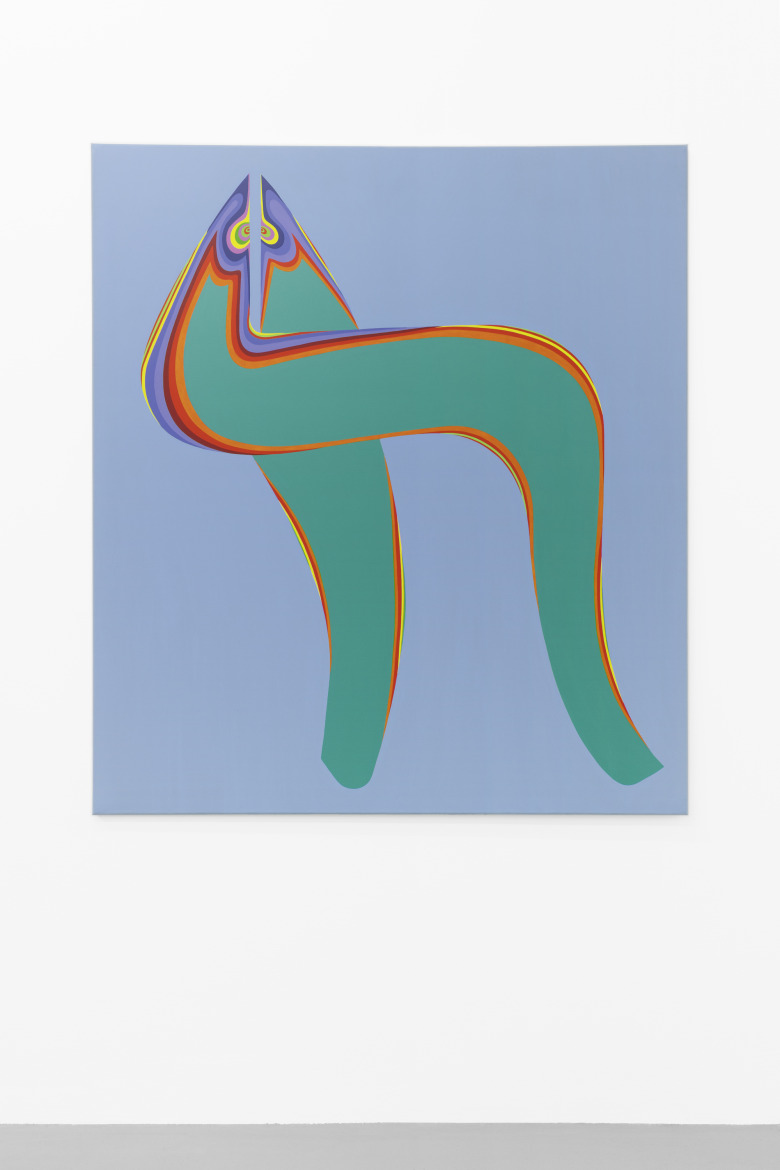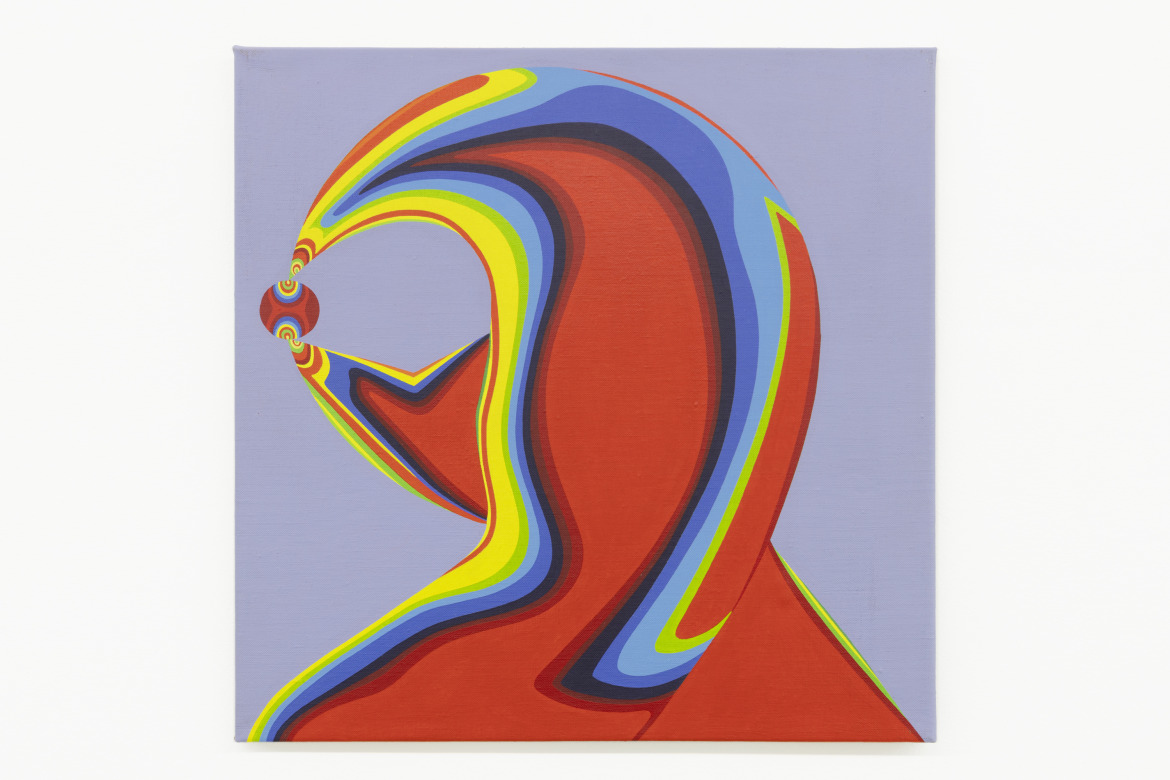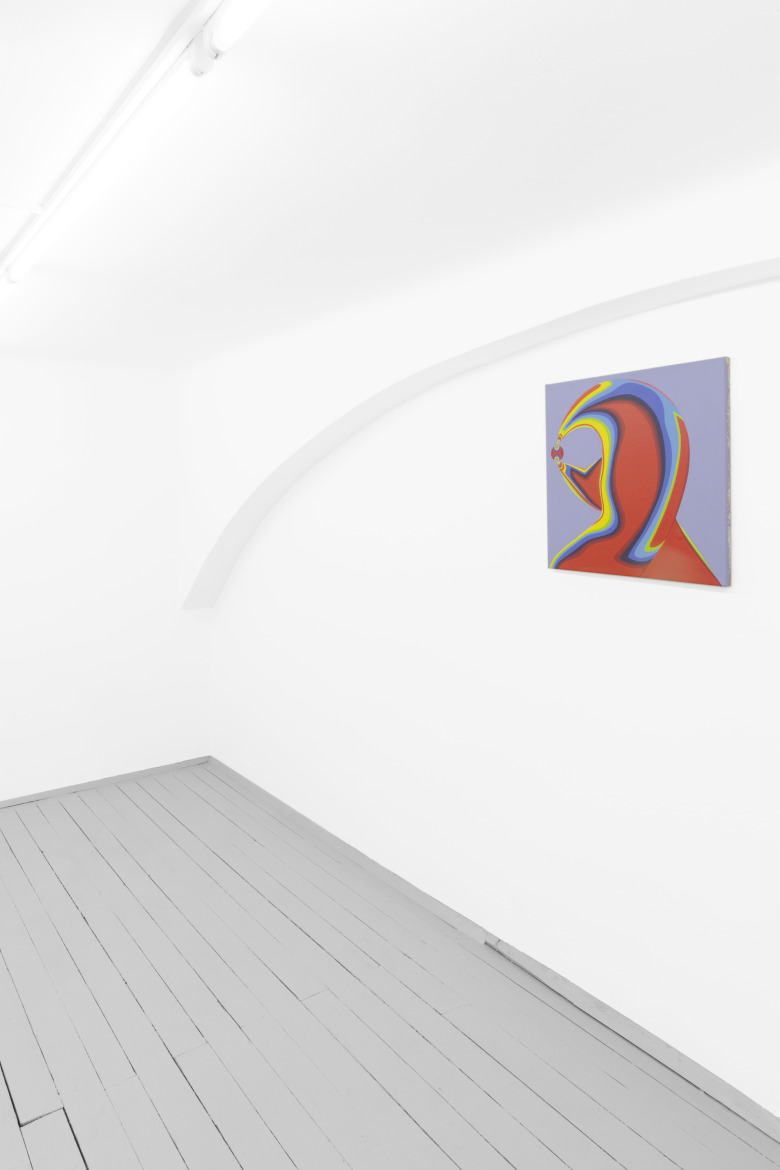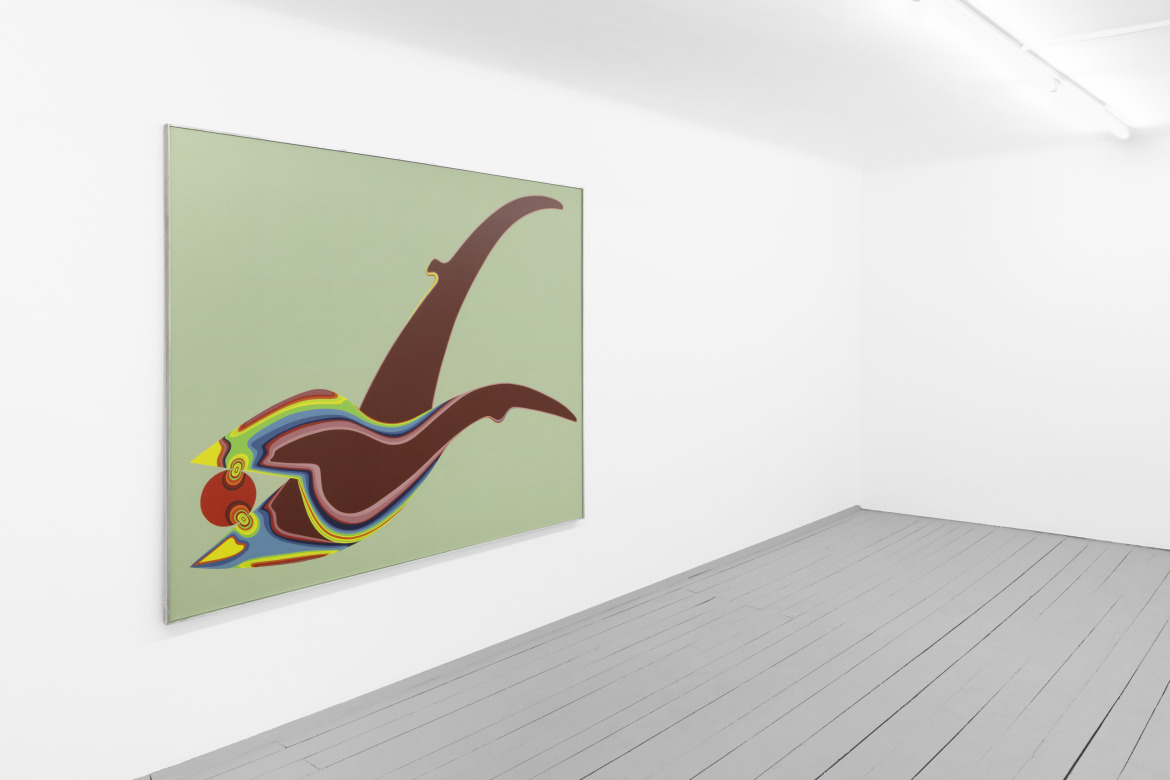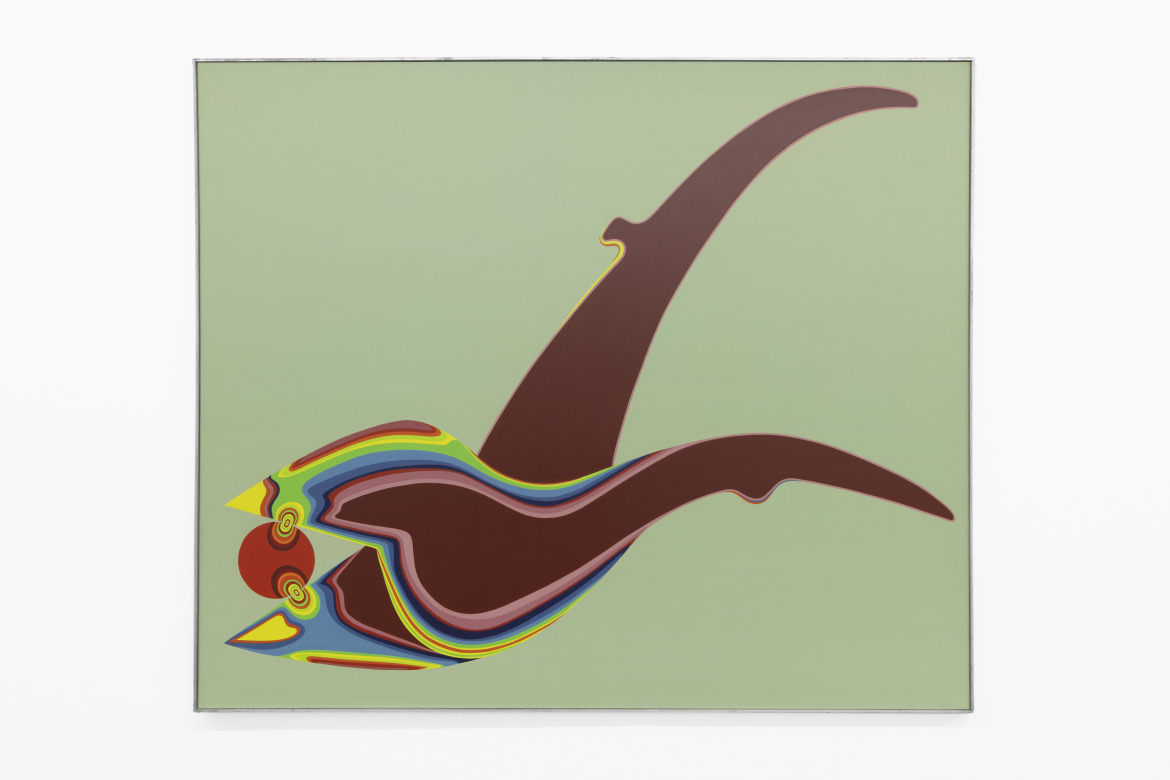Following the fist solo exhibition in 2021 focusing on Sine Hansen’s works from the 1960s, EXILE is pleased to now present the exhibition Spannungszangen featuring six of the artist’s paintings from the 1970s. Many of the works in this exhibition have not been exhibited since the time of their production.
Sine Hansen’s Spannungszangen Series (1974-1979) take on tension as a formal technique and an embodied phenomenon in vibrant portraits of acrobatic pliers. These paintings are tightly wound, highly precise. Their dancing forms appear caught mid-step, as if preparing for a pirouette in almost-rainbow hues. I think of a rubber band pulled taught: something about to spring into motion. Painting tools and other household objects throughout the 1960s—light bulbs, safety pins, scissors, Hansen developed a bright, popish visual language by juxtaposing pared-down depictions of these instruments in egg tempera, acrylic and screen print.
The Spannungszangen, to which she devoted much of the 1970s, were a breakthrough, harnessing a potent and playful energy. Now working in acrylic, she animated these fastidiously flat, monochrome shapes with a kind of life force, contouring their green and red forms with thin stripes of high-contrast chroma. Alongside their contrasting colors, these anthropomorphized tools derive their power from enacting a series of tensions: between levity and control, razor edges and rounded curves, biomorphic and mechanical, masculine and feminine.
In casting these tools as feminized bodies, Hansen sharpened her work’s feminist edge in concert with the transnational feminist art movement burgeoning at the time. Sine Hansen transported her own experience and observation into a colorful and imaginative, yet highly controlled, painterly register. She amassed a collection of pliers and clamps that she looked to as source material and was also influenced by images of force- field experiments that she had seen via a friend working at a scientific-technology company in Braunschweig, where she graduated from the Hochschule für Bildende Künste in 1966 and lived and worked until her death in 2009.
On a basic level, these paintings mess with gender binaries, as stereotypically masculine tools take on feminine curves. The works may have reflected her own confrontation with the patriarchy, as her immediate success with numerous exhibitions and accolades after art school was soon challenged by the deeply misogynist milieu in which she found herself. Despite such personal resonance, however, Hansen was after a kind of artwork that shed subjectivity to tap into what she described as the anonymity of a system of signs. There is something glyph-like about the Spannungszangen – I imagine bodies stretching to shape letters, or something of the bend in a graffiti tag. When the personal is political, it’s also a sign or a symbol. And a form of tension.
Where the feminist thrust of Hansen’s work comes immediately to the fore and could be compellingly situated in dialogue with other practices with parallel concerns (from Margaret Raspé’s camera-helmet films to Mira Schor’s punctuation paintings), her exploration of tension in these paintings also transcended sociopolitical context. In a statement on her work published in 1970, she wrote, “Controlling aggression is a key dimension of my practice. Things produced in this way carry a certain kind of information.” Like a kind of body language, the Spannungszangen manifest a form of non-verbal communication. To borrow Prunella Clough’s turn of phrase, these are paintings that “say a small thing edgily.”
